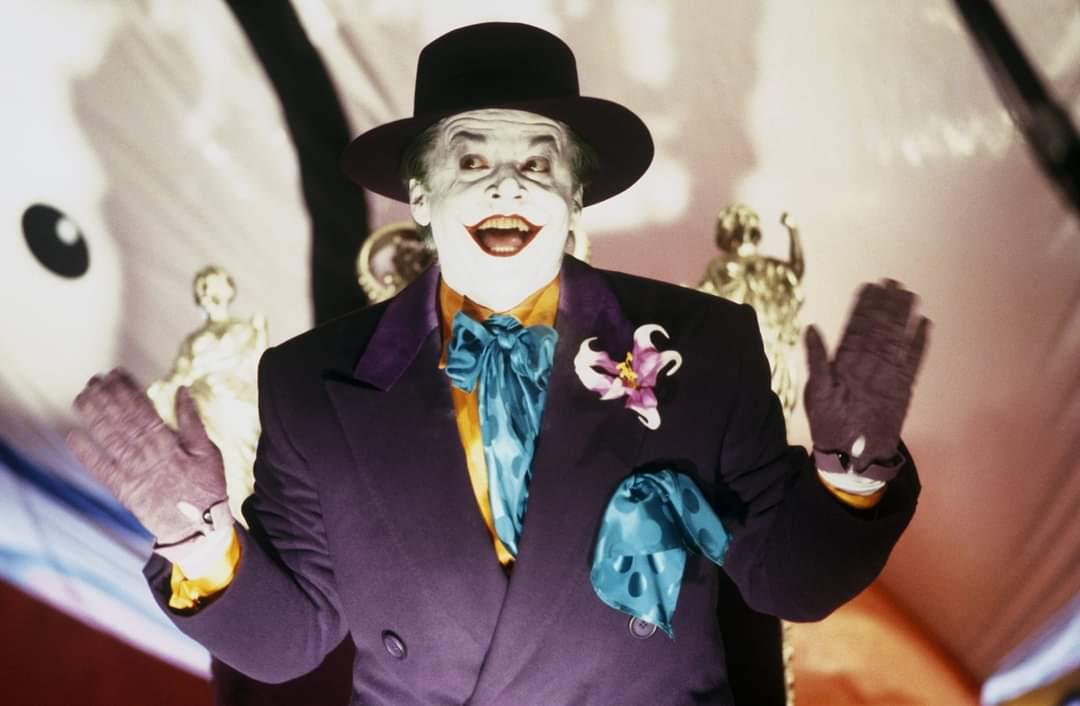We Exist in Trump’s Garden of Earthly Delights
Recently, I rewatched Batman, Tim Burton’s 1989 film about the cape crusader, which arguably ushered in the glut of comic book films we’re inundated with today. The film is twisted, dark, and filled with gothic overtures. But what truly sets apart the film is Jack Nicholson’s performance of the Joker. The character is insane, vengeful, and driven by madness to fulfill his egotistical fantasies. The film's climax involves the Joker throwing a parade for Gotham City’s 200th anniversary. He brings out the citizenry with promises of wealth and throws millions of dollars to the onlookers. Unbeknownst to the parade-goers, the giant balloons floating overhead are filled with toxic nerve agents that will kill everyone in the city. Batman, of course, saves the day, but not before the Joker has thrown the city into chaos.
In the late 80s, while the film was being written and produced, Donald Trump was just a simple real estate mogul whose wrath of terror was limited to ugly interior decorating, bankrupting casinos, and being an all-out creep at beauty pageants. While Burton and his writers didn’t know it then, their Joker is Donald Trump of the 2000s. (One could argue that Nicholson’s Joker is a genius, whereas Trump is simply just an asshole who got lucky.) Both characters prey on the unknowing and under-educated, using greed to propaganda to promote their ideas, which, on the surface, appear to benefit everyone. But the truth is much more sinister.
As has been stated before, Trump voters are actively voting against themselves. They only have “concepts” of ideas that they believe will somehow increase their financial well-being under Trump. The truth is Trump’s economy during his first presidency was in shambles. Sure, his wealthy friends got richer, but the average worker got destroyed. He was the first President since Herbert Hoover to leave office, with fewer jobs than when he started. And his newest “plan” of adding tariffs to imported goods will be an unmitigated disaster. After all, the consumers will inherit those costs, not China.
So the question must be asked: why did Trump run for President again? Was it to keep his ass out of jail? (Probably) Was it to help the ordinary American? (Doubtful) Was it to benefit his rich buddies? (Most Definitely) Was it to sow chaos across the nation and support Putin’s plan of tearing America apart from the inside? (Absolutely) This is all a game to Trump, a way to stroke his misaligned ego while appearing as someone who is out to make the country great again. (Sidenote: he won’t) Instead, we get to watch Trump play in his garden of earthly delights: a seemingly perfect paradise filled with sinister undertones.
Like Hieronymus Bosch's Renaissance surrealism, Donald Trump's image of "The Garden of Earthly Delights" is truly captivating. It’s why the American public is so fixated on him as an aspirational character. Trump’s garden features the famous triangle of excess, sin, and innocence, where joy and punishment sit side by side. In many ways, Trump's "garden" is built on a premise consistent with Bosch's painting: lavish wealth, relentless satisfaction, and one’s delight in distorting the truth. Morality is secondary to perception in this area. Trump’s public image is not built on a stable foundation. Rather, it comes from endless displays of the "fruits" of success, such as wealth, extravagance, and influence. The allure here is that Trump’s world offers permission to indulge in every desire, as though the act of wanting itself justifies any means of obtaining.
The metaphor between Bosch’s work and Trump doesn’t stop there. The gardens are gaudily decorated with gold, marble pillars, and twinkling lights. It is an artistic style in which grandeur replaces subtlety and scale. Any real connection in this area is obscured by a surface that renders its vulnerabilities almost obsolete. If Bosch’s world is built on the eternal tension between indulgence and moral consequence, then Trump’s world is one where indulgence has been reframed as virtue. What matters is not the act of self-restraint but the constant assertion of self.
Consider Trump the central figure in this landscape: a man who seems forever suspended between paradise and perdition. He revels in fame, seeking and receiving adoration as though it were a form of spiritual sustenance. His speeches, rallies, and proclamations are woven into a sprawling tapestry of self-affirmation, where even hyperbole becomes an end in itself. He creates a culture of loyalty where allegiance is to personality rather than principles, and, like the figures in Bosch’s painting who remain blissfully unaware of impending doom, his followers live in a rapture built upon endless reinforcement.
And yet, this Garden of Earthly Delights has an undertone of menace. Bosch’s painting reminds us that pleasure has a cost, a dark underbelly that reveals itself over time. Likewise, Trump’s world carries the weight of implications beyond his delight. His garden is vast, echoing into homes, screens, workplaces, and conversations—an echo chamber that affects those outside his circle. In Bosch’s painting, some figures’ bliss is naive, while others have a sly awareness, a willingness to ignore the more enormous consequences of their actions.
In this vision of Trump’s garden, his role is not just that of a ruler but of a symbol—an invitation to pursue dreams of greatness without fear of repercussion, as if pride itself were a birthright. Here, everything is permissible, but nothing comes for free. Like Bosch’s vision, this garden evokes the inevitability of consequence, suggesting that reality has a way of asserting itself despite our most elaborate illusions.
For all his cultivated splendor, Trump's garden is haunted by the ghosts of real-world outcomes—economic disparities, environmental decline, and cultural division. His delight may be boundless, but, like Bosch’s garden, it is set against a backdrop of impermanence, of something larger waiting to descend upon the revelers. And perhaps that is the great irony of it all: that in this grand pursuit of freedom from limits, we might find ourselves trapped in a world that is beautiful, yes, but also bizarrely claustrophobic, like being suspended forever in an extravagant tableau, trapped in a pleasure that does not sustain.
Ultimately, Trump’s garden is both arresting and alarming, a constructed Eden with glimmers of hellfire on the horizon. It is a world where pleasure and consequence dance closely but where one inevitably takes precedence. This Garden of Earthly Delights is less a paradise than a mirror—a reflection of a world obsessed with appearance over essence. This spectacle seduces even as it consumes, where delight may be plentiful, but peace always lies just out of reach. And this time, Batman won’t be here to save us from ourselves.


